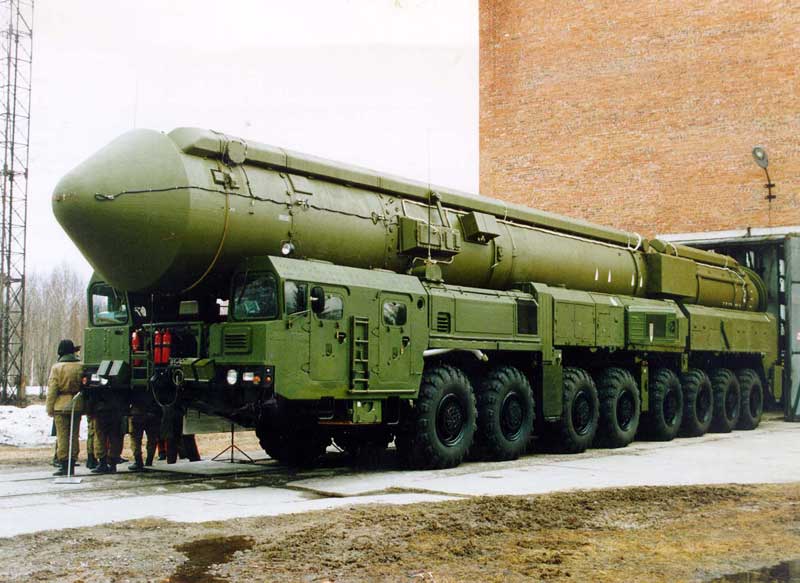Why does Russia lift S-300 ban on Iran now?

By Sara Rajabova
Russia’s recent decision to lift a ban on supplying Iran with the sophisticated S-300 air defense missile system has sparked broad discussion around the world.
Russian President Vladimir Putin’s unexpected order to lift the self-imposed ban on the delivery of S-300 missiles to Iran in this period of time wasn’t exactly accepted by the international community.
The delivery of the S-300s was cancelled by then-Russian President Dmitry Medvedev, following UN sanctions on Iran due to its disputed nuclear program.
Russia’s decision came as world powers, which also includes Russia, and Iran reached a framework agreement to resolve the nuclear dispute. The document also envisages the removal of UN sanctions that prohibits the supply of any weapons to Iran along with other terms.
Although conditions relatively softened towards Iran, there is no final nuclear deal signed yet and therefore no proof that the Islamic Republic's nuclear ambitions are indeed peaceful, hence lifting any sanctions might be a bit premature.
All these restrictions against Tehran are still in force and even today the sale of arms to the country is illegal. Therefore, Russia's decision to nevertheless go ahead in its delivery raised some questions in the international community.
There are maybe several reasons for such a move. The first being that after reaching a political breakthrough on Iran’s nuclear case, Putin probably believes that reaching a final deal with Iran is only a matter of time. Moscow is waiting for the lifting of sanctions to resume its arm exports to Iran.
With such a decision Russia could be simply preparing the ground for boosting its military cooperation with Iran when sanctions are lifted.
During a live broadcast on April 16, Putin said Russia was perfectly entitled to sell Iran S-300 missiles because of the progress made in talks on Tehran's controversial nuclear program.
“Today we see it clearly that Iranian partners exhibit a very great flexibility and a clear desire to reach a compromise on Iran's nuclear program. And now when there is progress in Iran’s nuclear “track”, it is obviously positive, we see no reason to continue unilaterally to maintain the ban for supply of S-300 to Iran,” RIA Novosti quoted Putin as saying.
However, there is still no any comprehensive nuclear agreement solving the nuclear dispute and the future of the ongoing negotiations is unpredictable. Thus, some experts also didn’t rule out the failure of the talks despite the framework accord reached between the P5+1 and Iran.
Therefore, there is still no exact date for delivering the systems to Iran. Tehran is determined to receive the missile systems in the current year. The two sides agreed to examine all technical issues related to the S-300 air defense missile system in the coming months, so that it could be delivered to Tehran by the end of the current year, according to Iranian media.
As world powers and Iran are expected to come to a decision by July 1 deadline, then there would be no obstacle to the delivery of S-300 to Iran by year's end provisioning of course a deal will be sign.
Another reason for Russia’s decision to deliver its S-300 missile system could be that Russia wants Tehran to withdraw its lawsuit against Moscow.
Russia and Iran have experienced a disagreement over the delivery of the anti-aircraft missile systems S-300 under a deal earlier signed between them.
Under the $800 million contract signed in 2007 by the two countries, Russia was to deliver S-300 air defense missile systems to Iran. However, it cancelled the contract to follow UN sanctions.
In turn, Tehran went as far as filing a $4 billion lawsuit against Russia’s intermediary agency for exports and imports of defense-related and dual use products, technologies and services, Rosoboron export with Geneva's arbitration court. Iran said it has no intention to withdraw the lawsuit till it receives the missile systems.
Considering the economic recession in Russia due to the Ukraine crisis, paying billions of dollars in fines is not admissible for Moscow while it could solve the problem without paying any penalty.
Commenting on the issue, James Dorsey, senior fellow at Nanyang Technological University's S. Rajaratnam School of International Studies, told AzerNews that “Russia is essentially jumping the gun on a possible lifting of sanctions.”
“In doing so, it garners increased Iranian empathy but will likely strengthen Iranian resolve in the final stretch of the nuclear negotiations. Iran could see the Russian move as an indication that the sanctions regime will crumble,” he said.
Dorsey said this will strengthen Iran’s resistance against threats by some countries.
“It will also toughen resistance from opponents to a nuclear agreement in Israel, the Gulf and the U.S. Congress, complicating issues for Obama in the process. Acquisition of the S-300 no doubt enhances Iranian military capability, which will raise the stakes in what is already a proxy war in Yemen and Syria,” Dorsey said.
--
Sara Rajabova is AzerNews’ staff journalist, follow her on
Twitter: @SaraRajabova
Follow us on Twitter @AzerNewsAz
